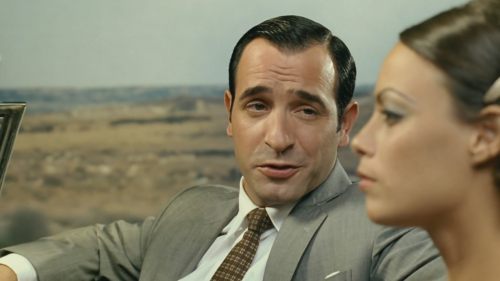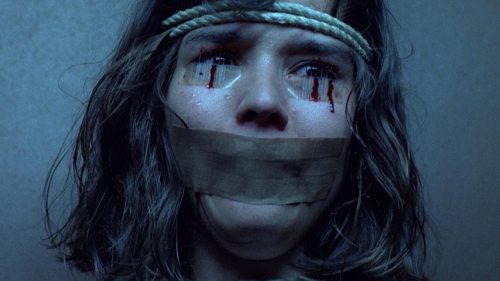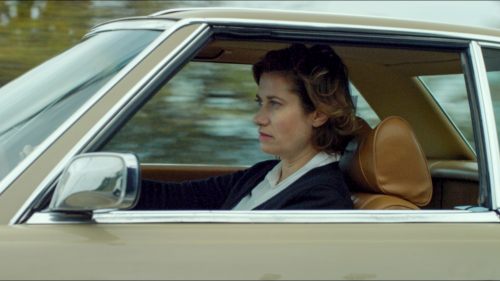MUBI Movies: The Comedy (2012)
MUBI is a streaming service catering to cinephiles who believe in quality over quantity. Each day, MUBI adds a new film to its library, where it will stay for 30 days, after which it circulates out and gives room for another new entry. Throughout 2019, we will highlight one MUBI movie per month to help illustrate the catalog’s breadth and importance.
If you’re at all familiar with the works of Tim Heidecker and Eric Wareheim, then you’re likely aware that their style of comedy is at once absurdist to the point of idiosyncrasy and yet somehow subversively cynical about the nature of local government, corporate pandering, and the effectiveness of low-cost, low-effort advertising. They are comedians who appeal directly to our desire to see the strangeness of our everyday heightened to the point of farce, but they also use that heightening to create counterprogramming to the ways in which our culture programs us to accept the absurdities of consumerism. This thoughtfulness is a big reason why Heidecker and Wareheim have been able to branch out beyond their partnership both as comedians and dramatic actors, because the thoughtfulness of their apparently asinine antics translates well to less self-reflexive performances. Rick Alverson’s The Comedy isn’t any less idiosyncratic than, say, Tim and Eric Awesome Show, Great Job!, but it is an excellent example of how Heidecker’s talents, in particular, translate well into a dramatic setting.
Contrary to the title and the involvement of both Heidecker and Wareheim, The Comedy is not a funny movie and rarely does it intend to be. Heidecker plays Swanson, the son of a wealthy, comatose man in New York who alternately spends his days fucking around with his friends and acting as a general nuisance to any random jackoff he encounters. The film opens on Swanson in his father’s hospital room, engaged in a free-associative rant about his father’s shit to the nurse who is there to clean him. It’s clearly meant to be comprised of jokes, but the scatological references aren’t intrinsically funny on their own or compellingly delivered, nor is the nurse’s reaction anything other than blank annoyance at Swanson’s immature ramblings. Swanson seems to think he’s funny, though, so he keeps going, and this sets the template for the next ninety minutes of the film.
The Comedy isn’t so much plotted as it is a series of barely contiguous vignettes that show how Swanson spends his days. He’s a sad, bored individual who apparently has too much money to spend, not enough ways to spend it, and no worthwhile connections in his life to temper his impulses. On a whim, he jumps in on some yard work being performed by day laborers just to baffle and confuse his fellow upper-class neighbors. He goes job-hunting for minimum wage work, which he doesn’t need but seems to be a venue for him to fart his time away and maybe get a few gaffs in at the expense of his coworkers. One particularly noteworthy scene involves Swanson bribing a very uncomfortable taxi driver to let him drive the cab for a while, only to abuse that trust by driving the cab unsafely and going to pick up a prostitute. The film doesn’t frame these incidents as wacky scenarios with a loveable character guiding us through a tour of his charmed life; Swanson is a sad man whose life is filled with the antics of a child who has yet to learn the nuances of empathy, resulting in boredom and alienation.
Nowhere is the purpose of this character study more apparent than in how he interacts with his circle of friends, which includes Wareheim. They certainly seem to amuse each other with riffs that inevitably enter shock-jock dark territory - like pretending to be a slave owner, pondering the economy of hobo prostitution, and cracking jokes that maybe Timothy McVeigh and Adolf Hitler may have had some salient points - but these casual cruelties aren’t delivered with punchlines, only with the attendant belief that being an asshole is in itself comedic. And what happens when these men run out of gags at others’ expense? They turn on each other, as one friend discovers in a moment of genuine vulnerability where Swanson and company immediately turn to mockery and insults so as not to deal with an actual emotion. And when there’s nothing left to mock, they fall into silence, as the pain of others is the only thing over which they share any bond at all.
The Comedy is at its core about the tragic disparity between the perception that jokes bring us joy and the reality that many people use cruelty disguised as humor to avoid dealing with their own inhumanity. It would be easy to dismiss Swanson as a character removed from our own experiences, an extreme example of how punching down at the working class and racial minorities pervades the upper tiers of wealth, but Tim Heidecker plays Swanson as an everyman in spite of his wealth. The wealth is a means for him to treat others like garbage, but it isn’t why he uses his faux humor as a crutch. It’s because his only connections with other people are through a lens of cynicism and ironic detachment, and it might just be that our embrace of dark humor is creating a culture where we can no longer truly empathize with another person.



